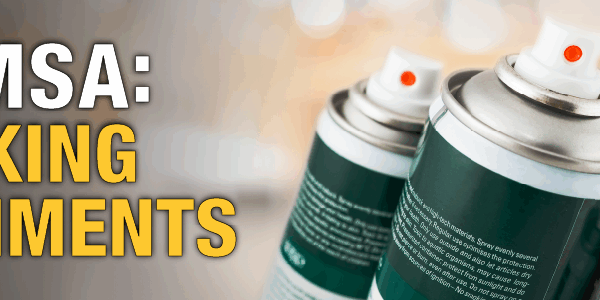The Pipeline and Hazardous Materials Safety Administration (PHMSA) has increased the potential penalties for failing to comply with the Hazardous Materials Regulations (HMR).
Under Title 49, Code of Federal Regulations (49 CFR), hazardous materials must be transported in accordance the rules set out in Parts 100-185 of the HMR. Failing to follow these minimum standards can result in serious risk to the public, as well as environmental and property damage. Therefore, the potential penalties for lack of compliance must be appropriate. These penalties are set by Congress, but must be reflected in the HMR itself. Civil penalties are fines; there are criminal penalties involving prison sentences for violations that are “willful or reckless”.
Penalties must be kept current, and reflect not only inflationary changes, but also the government’s concern ab that the regulations are taken seriously by stakeholders. Therefore, on July 6, 2012, the U.S. Congress revised the maximum and minimum civil penalties for a “knowing violation” of the Federal hazardous material transportation law, or legal requirements under that law, such as regulations, special permits, inspectors’ orders or special approvals issued under that law. Details on these new penalties may be found in 49 U.S.C. 5123(a). The new penalties take effect on violations that occurred on or after October 1, 2012.
To follow Congress’ lead, PHMSA issued a Final Rule ([Docket No. PHMSA–2012–0257 (HM–258)], RIN 2137–AE96) on April 17, 2013, that incorporated the new civil penalties. These involve:
- Increasing the maximum fine possible from $55,000 up to $75,000, for knowingly violating the law;
- Revising the maximum penalty from $110,000 to $175,000 , for knowingly violation the law in a way that results in “death, serious illness or severe injury” to a person, or which causes substantial destruction of property; and
- Eliminating the minimum civil penalty amount, since most fines are well over the previous set minimum of $250. However, a minimum penalty will be retained for training violations, now to be set at $450.
The updated sections of the HMR include:
- § 107.329, Maximum penalties,
- Appendix A to Subpart D of Part 107 – Guidelines for Civil Penalties, and
- § 171.1, Applicability of Hazardous Materials Regulations (HMR) to persons and functions.
Text of the Final Rule can be found here.
Proper training is one essential aid to avoid violations. For training information, or if you have questions about this Final Rule, contact us here at ICC The Compliance Center Inc.
1-888-442-9628 (USA) or 1-888-977-44834 (Canada).






 ICC USA
ICC USA ICC Canada
ICC Canada